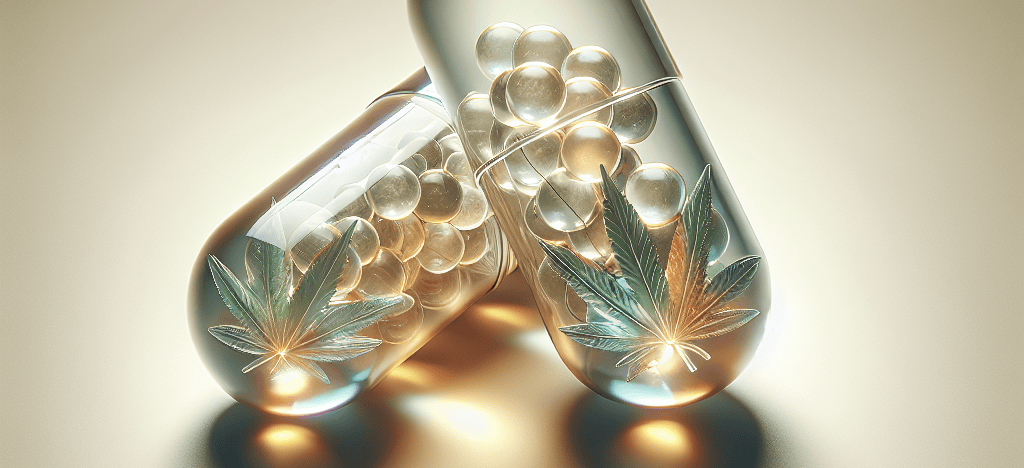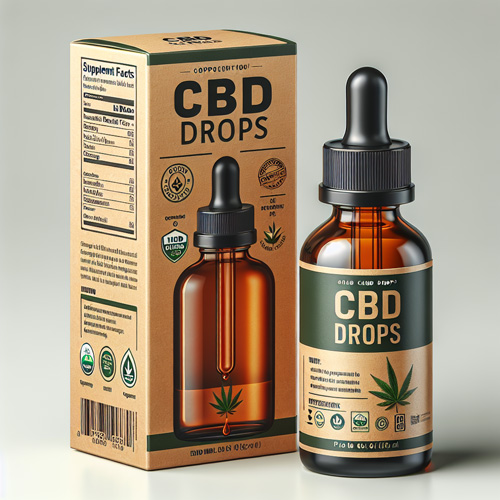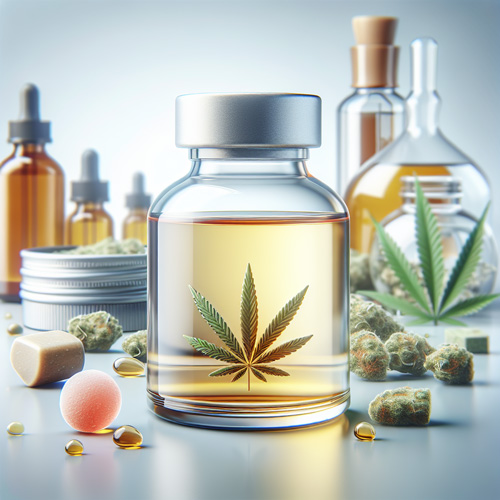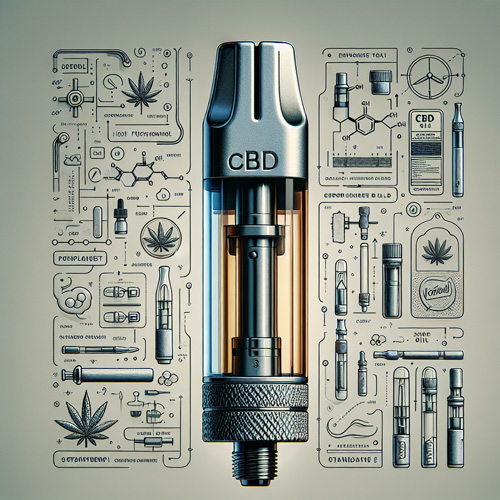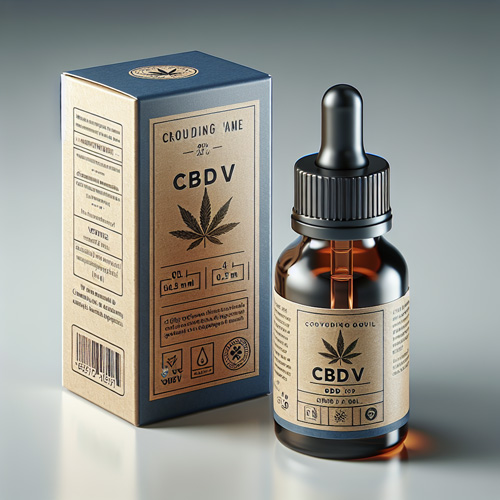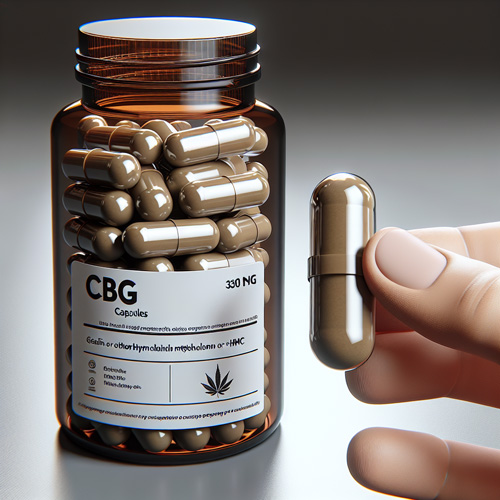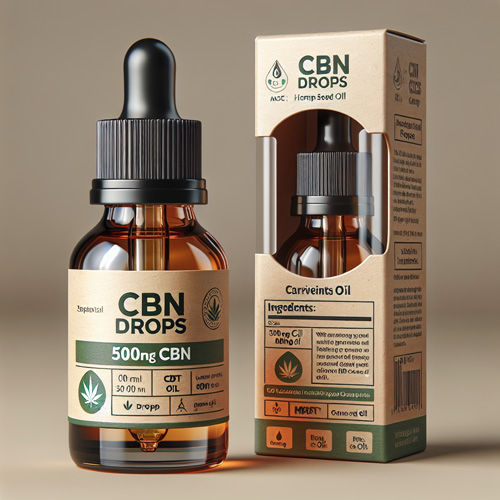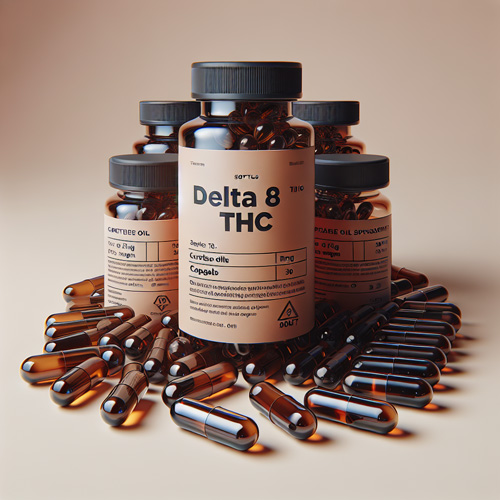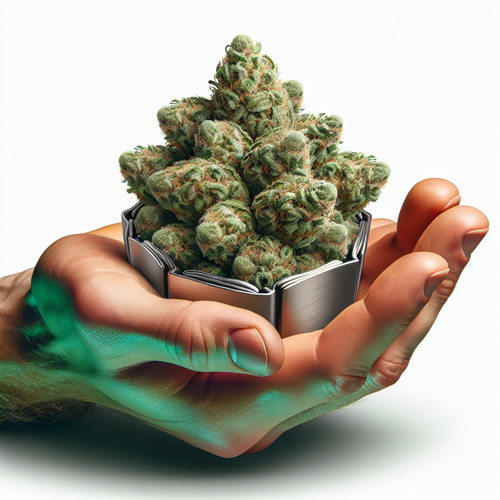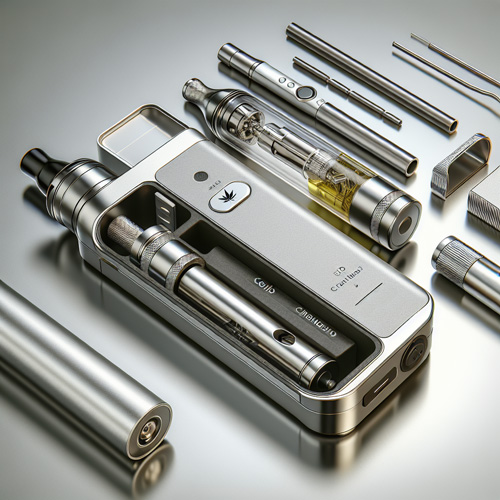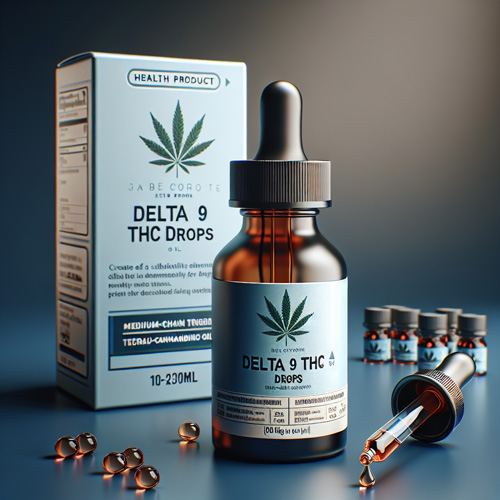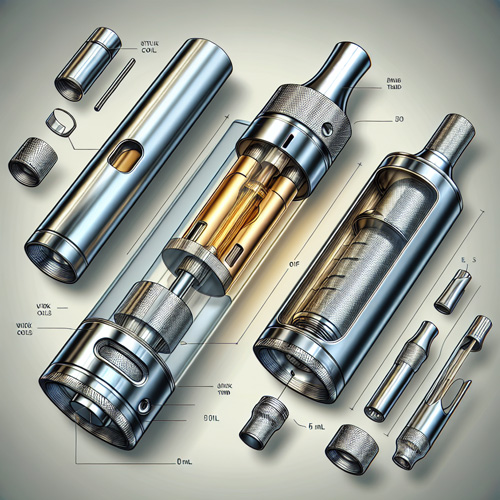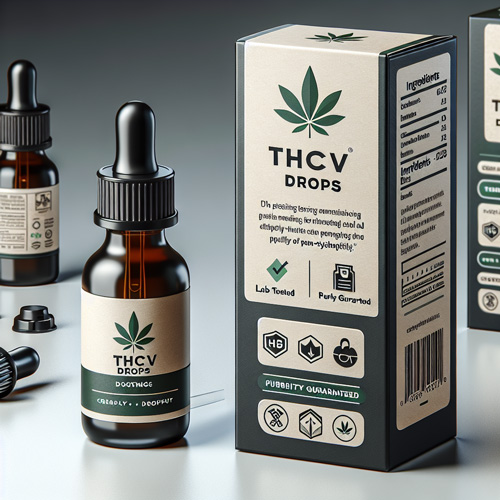
The Potential Medical Benefits of THCa
Definition of THCa
THCa, short for Δ9-tetrahydrocannabinolic acid, is a chemical compound found in cannabis plants.
In its raw and unheated form, THCa does not produce the same psychoactive effects as THC. Instead, it offers potential medical benefits, making it an intriguing area of research. THCa has demonstrated various therapeutic properties, including anti-inflammatory and neuroprotective effects.
While most research on THCa is still in its preliminary stages, anecdotal evidence from cannabis users and preliminary studies suggest that this compound may offer a range of health benefits.
Further clinical trials and research are needed to explore its full medicinal potential.
Summary of Potential Benefits
THCa is the precursor to THC in cannabis plants. Unlike THC, THCa does not produce psychoactive effects when consumed in its raw form, making it an exciting area of research due to its potential medical benefits.
One of the key properties of THCa is its anti-inflammatory effects. It has been found to reduce inflammation in both animal and cellular models, suggesting its potential therapeutic use in inflammatory conditions such as inflammatory bowel diseases and neurodegenerative diseases.
In addition to its anti-inflammatory properties, THCa also exhibits neuroprotective and antioxidant properties. These properties suggest its potential in protecting brain cells from damage and supporting overall brain health.
THCa has shown promise in managing pain, reducing nausea, and improving sleep. It may be particularly useful for individuals suffering from chronic pain, chemotherapy-induced appetite loss, eating disorders, insomnia, and cancer. However, further research and clinical trials are needed to better understand the therapeutic potential of THCa and its consumption methods.
With its anti-inflammatory, neuroprotective, and antioxidant properties, THCa has the potential to revolutionize the medical field and provide promising alternatives for individuals seeking natural and effective treatments.
Psychoactive Effects

One of the most well-known properties of cannabis plants is their ability to produce psychoactive effects, primarily due to the presence of the compound Δ9-tetrahydrocannabinol (THC).
THC is responsible for the characteristic “high” or intoxicating effects experienced by cannabis users. However, it is important to note that THCa, the acidic form of THC found in raw flower, does not have psychoactive effects. THCa only becomes psychoactive when it is heated and converted into THC through a process called decarboxylation.
This means that consuming raw cannabis in its natural form, which contains THCa, does not lead to any intoxicating effects. Instead, THCa offers potential therapeutic benefits without the mind-altering effects associated with THC. It is therefore essential to differentiate between THCa and THC when discussing the medical benefits of cannabis compounds.
Overview of Psychoactive Effects
In its raw form, THCa is non-psychoactive, meaning it does not induce the “high” sensation typically associated with cannabis use.
The lack of psychoactive effects of THCa can be attributed to its chemical structure and the way it interacts with the body. THCa does not naturally bind well to the cannabinoid receptors, specifically the CB1 receptor, responsible for the euphoric sensation. This is why consuming raw THCa does not have intoxicating effects.
However, when raw THCa is exposed to heat through a process called decarboxylation, it undergoes a chemical reaction that transforms it into THC, the psychoactive compound commonly known for its intoxicating effects. When THC is formed, it can bind effectively to the CB1 receptor, resulting in the well-known psychoactive effects.
It’s important to note that consuming raw THCa does not lead to these psychoactive effects unless heated or decarboxylated. This distinction makes raw THCa an attractive option for those seeking the potential therapeutic benefits of cannabis without experiencing a high.
While more research is needed to fully understand the medicinal benefits of THCa, preliminary studies suggest that it may have promising neuroprotective and anti-inflammatory properties. THCa also shows potential in the treatment of neurodegenerative diseases, muscle spasms, inflammatory bowel diseases, prostate cancer, and metabolic diseases.
THCa in its raw form offers a non-psychoactive alternative for individuals seeking the potential therapeutic benefits of cannabis. Its lack of psychoactive effects makes it a viable option for those who want to harness the medicinal benefits without experiencing intoxicating effects.
Psychoactive Effects Compared to THC and CBD
THCa, while being one of the chemical compounds found in cannabis plants, does not produce the psychoactive effects commonly associated with THC. Unlike THC and CBD, THCa is not psychoactive in its natural form. It is only when THCa is heated and converted into THC through a process called decarboxylation that it becomes intoxicating.
This lack of psychoactivity can be attributed to the way THCa interacts with the cannabinoid receptors, particularly the CB1 receptor, which is responsible for the euphoric and intoxicating effects of THC. Research has shown that THCa does not bind well to CB1 receptors, resulting in minimal activation and consequently no psychoactive effects.
Preliminary studies have also indicated that THCa has a unique molecular structure that differs from THC, allowing it to have distinct effects in the body. THCa has been found to possess potential health benefits, including neuroprotective properties and anti-inflammatory effects. However, it does not induce the intoxicating high typically associated with THC.
Overall, THCa in its natural form does not produce psychoactive effects. It is only when heated and converted into THC that it becomes intoxicating. This difference in psychoactivity is due to the way THCa interacts with cannabinoid receptors and its unique chemical structure.
Molecular Structure of THCa
THCa is a chemical compound found in cannabis plants. It is the acidic form of THC, which is the main psychoactive compound in cannabis known for its intoxicating effects. The molecular structure of THCa is similar to THC, with a similar chemical composition of 21 carbon atoms, 30 hydrogen atoms, and 2 oxygen atoms.
The main difference between THCa and THC lies in the presence of an extra carboxyl group in THCa. This carboxyl group gives THCa a distinct shape and affects its chemical reactivity. When THCa is exposed to heat or light, a process called decarboxylation occurs. This process involves the removal of the carboxyl group and the conversion of THCa into THC, the compound responsible for the psychoactive effects of cannabis.
Further degradation of THC can lead to the formation of cannabinol (CBN), which has different effects on the body compared to THC. This molecular transformation occurs over time as cannabis products age or are exposed to heat.
Understanding the molecular structure of THCa and its conversion to THC through decarboxylation is important for medical cannabis users and researchers alike. It helps in determining optimal consumption methods and dosage for specific therapeutic benefits. Additionally, studying the chemical reactions of THCa provides insight into the potential therapeutic properties of this compound, as well as its interactions with cannabinoid receptors in the body.
Anti-Inflammatory Properties of THCa
THCa, the acidic form of THC found in raw cannabis, has shown promising anti-inflammatory properties. Research indicates that THCa can reduce inflammation in cells and animal models through its interaction with COx pathways. These pathways are involved in the production of inflammatory molecules. By inhibiting COx enzymes, THCa may help to lower inflammation levels in the body.
However, it is important to note that further research is needed to determine if these effects translate to humans. While initial studies have shown promising results, clinical trials are necessary to confirm the potential medical benefits of THCa in humans.
There are several medical conditions that could potentially benefit from the anti-inflammatory properties of THCa. These include irritable bowel syndrome, arthritis, lupus, and chronic pain. Inflammatory bowel diseases and metabolic diseases characterized by chronic inflammation may also potentially benefit from THCa’s anti-inflammatory effects.
It’s worth mentioning that THCa can often be found in raw cannabis flower or through juicing routine. This allows individuals to consume THCa in its raw form, avoiding the intoxicating effects associated with THC. However, it’s important to consult with a healthcare professional before incorporating THCa into any treatment plan, as individual results may vary.
THCa shows potential as an anti-inflammatory compound, but more research is needed to fully understand its effects on inflammation in humans. With its potential therapeutic benefits for various medical conditions, THCa presents an intriguing avenue for future exploration in the field of cannabis research.
Neuroprotective Properties of THCa
THCa exhibits neuroprotective properties that may have significant therapeutic potential. One of its key benefits is its ability to protect neurons from damage caused by inflammation and oxidative stress. Inflammation and oxidative stress are known contributors to neurodegenerative diseases such as Alzheimer’s and Parkinson’s. By reducing inflammation and oxidative stress, THCa can help preserve the health and function of neurons.
Furthermore, THCa has been found to promote the growth of new neurons, a process known as neurogenesis. This is particularly important in the context of neurodegenerative diseases, as the loss of neurons is a major hallmark of these conditions. By stimulating the growth of new neurons, THCa may help to counteract the neuronal loss seen in diseases like Alzheimer’s and Parkinson’s, potentially slowing down their progression.
In addition to its role in protecting and promoting the growth of neurons, THCa has also been shown to improve cognitive function and motor deficits associated with neurodegenerative diseases. Studies have suggested that THCa has the potential to improve memory, attention, and executive function. It may also help to reduce motor symptoms such as tremors and stiffness.
While the neuroprotective properties of THCa are promising, it is important to note that further research is needed to fully understand its potential in treating neurodegenerative diseases. Clinical trials are necessary to determine the safety and efficacy of THCa in humans. Nonetheless, these preliminary findings highlight the exciting therapeutic potential of THCa in the field of neurology.
Carboxylic Acid Form of THCa
The carboxylic acid form of THCa, also known as δ9-tetrahydrocannabinolic acid, is a precursor to THC, the psychoactive compound found in cannabis plants. What sets THCa apart from THC is the presence of an extra carboxyl group in its chemical structure. This carboxyl group gives THCa its acidic form and accounts for its lack of psychoactive effects.
However, when THCa is exposed to heat, a process called decarboxylation occurs, which removes the carboxyl group and converts THCa into THC. This transformation is the reason why consuming raw cannabis in its natural form does not produce the intoxicating effects typically associated with cannabis use.
While the carboxylic acid form of THCa may not have psychoactive properties, it still holds potential medical benefits. Various THCA-based products are available on the market, each with its own specific uses. For example, some individuals incorporate raw cannabis flower into their juicing routine to access the potential anti-inflammatory and neuroprotective effects of THCa.
Preliminary studies and anecdotal evidence suggest that THCa may have therapeutic potential in treating conditions such as inflammatory bowel diseases, metabolic disease, muscle spasms, and appetite loss. However, more research and clinical trials are needed to fully understand the medicinal benefits of THCa and its various consumption methods.
The carboxylic acid form of THCa differs from THC and can be found in various THCA-based products. While it may lack psychoactive effects, THCa shows promise in providing medicinal benefits for certain conditions. Research in this area is ongoing, and future studies will shed more light on the therapeutic potential of this cannabinoid.
Raw Cannabis vs. Processed Cannabis Products
Raw cannabis refers to the cannabis plant in its natural, unprocessed form. It contains a precursor to THC known as THCa (δ9-tetrahydrocannabinolic acid), which does not produce psychoactive effects. However, when raw cannabis is exposed to heat, a process called decarboxylation occurs, converting THCa into THC and creating the well-known intoxicating effects associated with cannabis use.
Processed cannabis products, on the other hand, are created through various extraction methods that separate the desired cannabinoids and terpenes from the plant material. This extraction process typically involves the use of solvents or heat to remove the desired compounds. Different forms of processed cannabis products include shatter, budder, and crumble, each with unique consistencies and characteristics based on the extraction method used.
Consuming raw cannabis has its own benefits and drawbacks compared to processed cannabis products. Raw cannabis contains THCa, which may have potential therapeutic benefits such as anti-inflammatory and neuroprotective properties. It can be consumed through juicing or incorporating it into food and beverages. However, the availability of raw cannabis is limited, and it may not be easily accessible for all individuals.
Processed cannabis products, on the other hand, offer a wider range of options and convenience for consumption. They can be ingested orally, vaporized, or used topically depending on the product type. However, the processing and extraction methods may remove certain compounds, potentially diminishing the entourage effect and overall efficacy of the product.
Raw cannabis contains THCa and lacks psychoactive effects, while processed cannabis products have undergone extraction to concentrate desired compounds. Each has its own benefits and drawbacks, and individuals should consider their consumption preferences and desired effects when choosing between raw cannabis and processed cannabis products.
Conclusion
In conclusion, THCa holds significant promise as a non-psychoactive alternative with potential therapeutic benefits. Its anti-inflammatory, antiemetic, anti-proliferative, and neuroprotective effects make it a promising avenue for medical research. However, it is important to note that further scientific data is needed to fully understand the specific medical uses and optimal consumption methods of THCa.
One important aspect to consider is the psychoactive consequences of converting THCa into THC, the well-known psychoactive compound found in cannabis plants. THCa itself does not produce intoxicating effects, making it an appealing option for individuals seeking the potential benefits of cannabis without psychoactive consequences.
Furthermore, the legal status of THCa differs from THC, as THCa is found in raw cannabis and hemp plants, whereas THC is considered a controlled substance. This distinction indicates that exploring the therapeutic potential of THCa may be more feasible at the federal level compared to THC.
While the potential benefits of THCa are promising, it is essential to conduct further research to fully elucidate its medical uses. The non-psychoactive nature of THCa and its legal implications make it an intriguing alternative for individuals seeking medicinal benefits. With more scientific data, THCa could become a valuable treatment option in the future.



